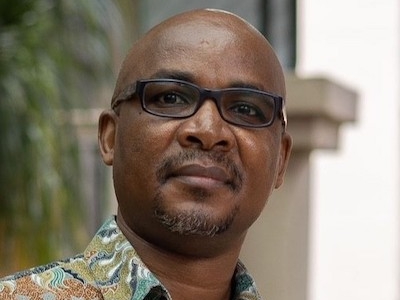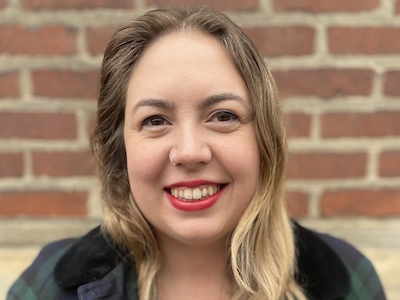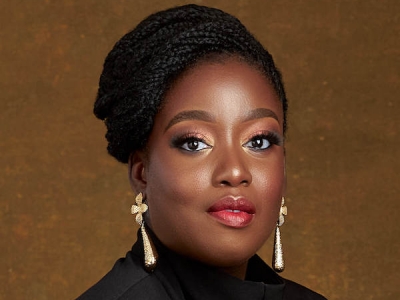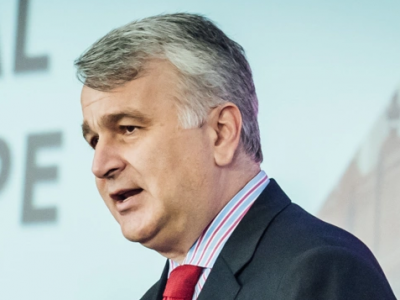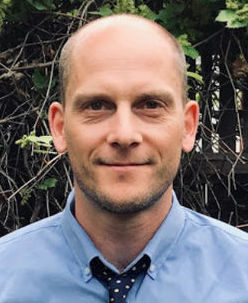 By Andrew Kear, Senior Curator and Head of Collections, Exhibitions and Programs.
By Andrew Kear, Senior Curator and Head of Collections, Exhibitions and Programs.
Museum London addresses social issues through our exhibitions, programs, acquisitions and policies. Since 2017, we’ve mounted 15 art and material culture exhibitions concerned with colonial history and Indigenous knowledge, Black culture and systemic racism, community voice, and climate change. Our education programs address issues outlined in the Ontario curriculum. Grants and sponsorships provide opportunities for students from lower-income communities to participate in our on-site school programs. We’ve developed new Collections Plans for both the art and material history collections that prioritize First Nations/Métis, Black, Asian, Hispanic, and LGBTQ2+ artists and histories. And our Board includes representatives of Indigenous, Muslim, and LGBTQ2+ communities, and is now looking to establish a Diversity Advisory Committee.
The history
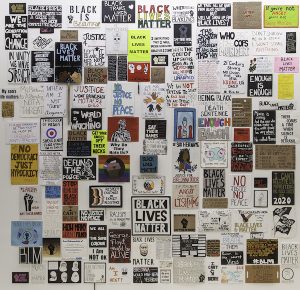
“Black Lives Matter, London,” installation at Museum London, in Ontario, from Aug. 13/20 to Feb. 28/21. Photo credit: Museum London.
Behind these initiatives lies a history of addressing social issues through exhibitions and programs. This has been intensified and informed by contemporary events: the murder of George Floyd; environmental protests; concerns around Indigenous sovereignty, as well as the 25th anniversary in 2020 of the Ipperwash Crisis; greater awareness of sexual and gender-based violence; and the ongoing local effects of economic disparity. In part, our work has been encouraged by the criteria within government grants featuring equity, inclusion and diversity. Partnerships also provide impetus, such as our recent collaboration with faculty at Western University on the environmentally themed exhibition GardenShip and State. At the Board and leadership levels, there’s also a growing call for Museum London to be more responsive and welcoming to a wider audience and more open to community partnerships.
How we’re responsive
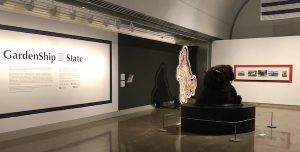 Museum London continues to look for opportunities to work with representatives of marginalized communities and to maintain longstanding relationships with organizations such as the Black History Committee and the Unity Project for Relief of Homelessness in London, Ontario. In 2018 we secured funding from the London Community Foundation to hire an Indigenous Legacies Project Manager on a one-year contract. Since then, we’ve demonstrated greater commitment to working with and following the lead of community consultants and guest curators from marginalized communities. We recently received funding to support the creation of new video works by artists identifying as Black, Indigenous, and People of Colour—the most successful works to be screened starting in the fall of 2022.
Museum London continues to look for opportunities to work with representatives of marginalized communities and to maintain longstanding relationships with organizations such as the Black History Committee and the Unity Project for Relief of Homelessness in London, Ontario. In 2018 we secured funding from the London Community Foundation to hire an Indigenous Legacies Project Manager on a one-year contract. Since then, we’ve demonstrated greater commitment to working with and following the lead of community consultants and guest curators from marginalized communities. We recently received funding to support the creation of new video works by artists identifying as Black, Indigenous, and People of Colour—the most successful works to be screened starting in the fall of 2022.
Resource management is the biggest challenge to Museum London’s ability to develop, formalize, and then implement policies and projects that respond to social issues. Like most small-to-mid-sized museums, we face the prospect of repairing the boat while floating on the lake, needing to deliver established and successful programs, while at the same time looking critically at itself in the wake of a sector-wide reconsideration of museums’ roles.
Here’s an example
The exhibition 80ML was conceived as an on-site celebration of Museum London’s 80th Anniversary in 2020. But with the arrival of COVID-19, 80ML evolved into a virtual exhibition in 2021 that prioritized community input and feedback. In consultation with the community and paying close attention to diversity, we commissioned 80 Londoners each to pen an 80-word response to either an art work or artifact that we selected from our collection—but with the respondents’ values, concerns and experiences in mind. For the most part, the respondents weren’t art or heritage specialists, but instead, were entrepreneurs, teachers, activists, volunteers, religious leaders, social service advocates and professionals who demonstrated high degrees of community involvement.
Looking ahead
Museum London will continue to position social issues in the foreground, while working to ensure traditional audiences continue to feel welcome. The establishment of a Diversity Advisory Committee will help clarify and hone our mandate and new strategic plan to be launched this year. We’ll continue to pay attention to opportunities for online programming, as well as to our reach to communities beyond the primary locale of London/Middlesex. Digitization—especially of the Museum’s under-documented material culture collection—will create new resources for the museum to address social issues.
Since 2019, Andrew Kear has been the Senior Curator and Head of Collections, Exhibitions and Programs at Museum London. He was formerly Chief Curator at the Winnipeg Art Gallery. Museum London is on Instagram, Facebook and Twitter. Photos on this page are courtesy of Museum London.
Thursday, March 10, 2022 in Arts, For homepage, News & Events, Social Justice & Change
Share: Twitter, Facebook
